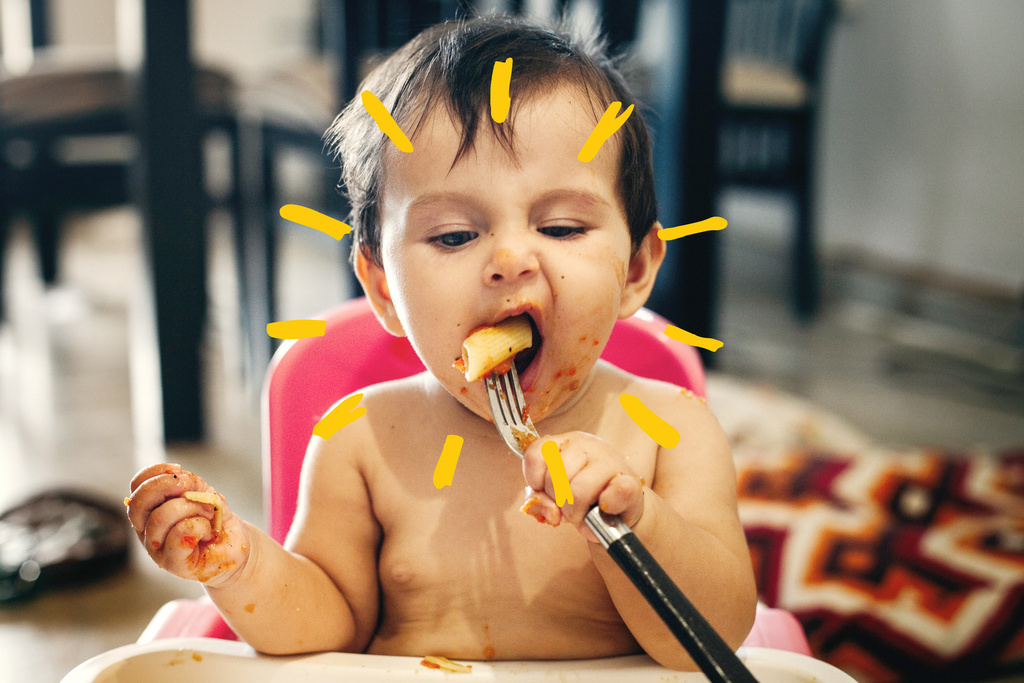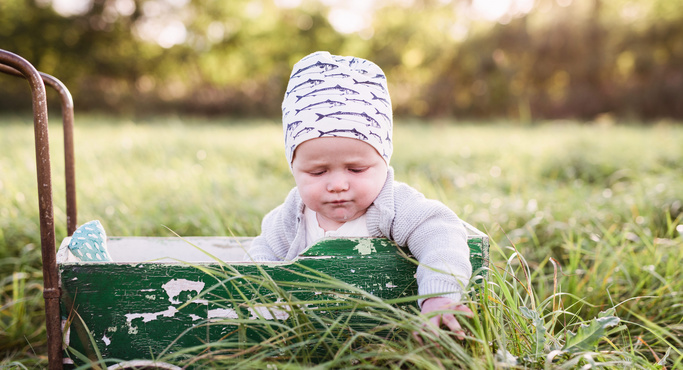Begin with only one ingredient for the first baby food and let your child get used to it slowly. A vegetable puree (such as parsnip or carrot) is good to start with because most children enjoy it and it is very easy to digest.
If feeding with the first ingredient goes well for 2–3 days, you can gradually add some mashed potato as a second ingredient and, after getting used to that, about 20–30g cooked, pureed meat as a third ingredient. After about a 3–4 week familiarisation period with eating solids, a standard portion of vegetable-potato-meat purée would be around 180–220g. Continue to vary the ingredients step by step because this encourages your baby's openness to new foods when they are older. Keep in mind that infants do not yet show any preference for sugar or salt in the first few months. Therefore, you should avoid products with additives such as sugar, salt and flavourings or spices.
After about a month, you can replace another milk feed, preferably in the evening, with a milk and grain cereal. A cereal meal in the evening can be very filling and, at the same time, ensure a peaceful sleep.
Once your baby has gotten used to their evening cereal, you can start to offer them a dairy-free grain and fruit puree in the afternoon.
You should continue to supplement these meals with breastfeeding or giving the bottle until their transition to child-friendly family food. Your child can join in the family meals from about one year of age. As soon as you start giving them solid food, your child will need additional drinks as well, so that their bowel movements do not become too hard.







